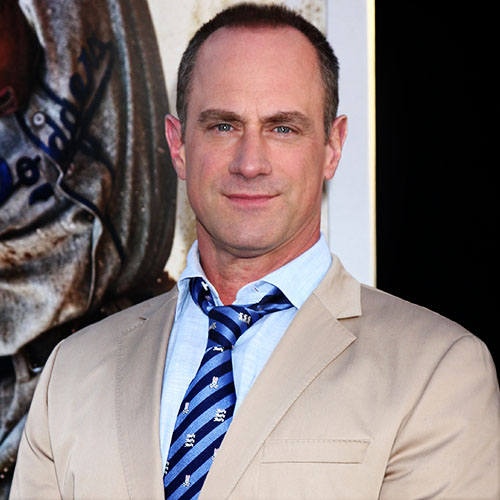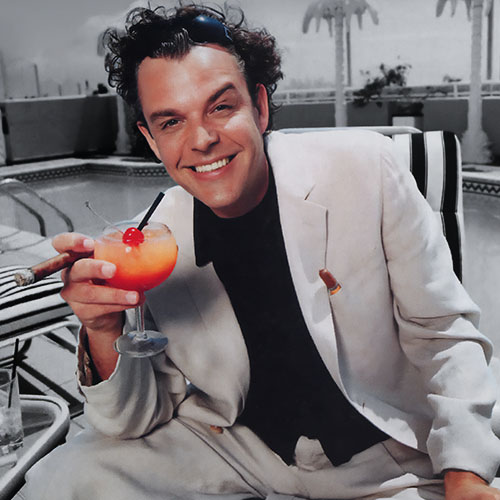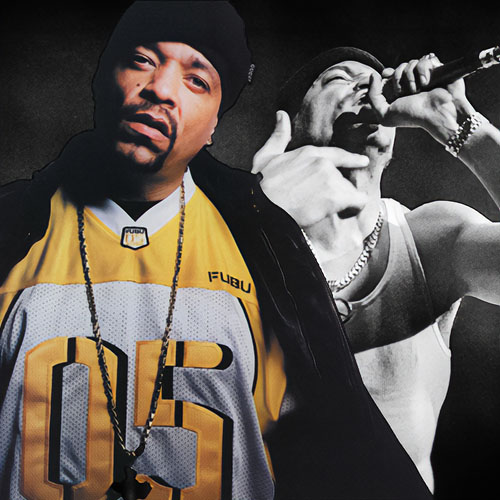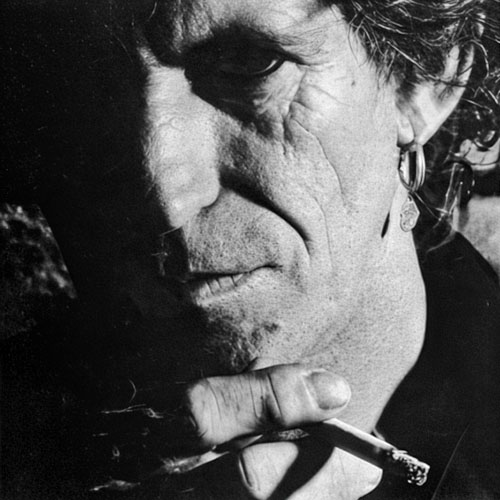“It’s not very sexy to be innocent. And I’m older now. You can’t act like an idiot anymore. Nobody’s going to buy it.”
Steve Martin: The Penthouse Interview
Steve Martin has accomplished what no other comedian of his postwar-baby-boom generation has even come close to: He has survived unscathed and intact, and he has remained true to his comedy.
For the last ten years, Martin has undoubtedly been America’s most prolific comedian, having produced in that time his stunning and hugely popular stand-up comedy act; four comedy albums (two won Grammy Awards); his best-selling primer on surrealism, Cruel Shoes; several successful television specials on which he has run the performing gamut from dancing like a dream to sporting a small pink trunk in a hilarious parody of The Elephant Man. He has made untold appearances on shows such as “Saturday Night Live” and the “Tonight Show,” fashioning balloon sculpture, playing the banjo, and juggling cats. And he has starred in six major motion pictures, five of which are original comedies that he co-wrote
In light of these whirlwind accomplishments, it is perhaps more worthy than usual to note: He does not do drugs, he is not always “on,” and he does not eat meat. He is an intellectual. He is a clothes horse. He is an art collector. And in his living conditions at least, he is a minimalist, preferring his home environments to be white and spare. He was born in Texas, grew up in Garden Grove, California, and says his childhood was “perfectly normal.” He is 38 years old.
Martin’s first movie, The Jerk, grossed $100 million on an investment of $4.5 million, after which Hollywood gave him its two-edged mandate: “Keep doing whatever it is you’re doing, kid, make another $100 million … uh … create.”
He has — and he hasn’t. Steve Martin has turned out three original comedy movies: Dead Men Don’t Wear Plaid, a tight, sweet, Sam Spade-type parody that, in its inventive cinematic technique of intercutting with forties detective films, predates Woody Allen’s Zelig; The Man with Two Brains, which is based on the most culturally interesting comedic premise of the last 20 years — the idea of planting an intelligent woman’s brain in the body of a bimbo — and which, among many other hilarious moments, contains a scene in which Martin makes love in a rowboat to a brain in a jar of formaldehyde; and The Lonely Guy, in which he teamed up with America’s other great absurdist comedian, Charles Grodin, to re-create the bittersweet plight of undatable men. What Steve Martin has not done is … uh … create another $100-million blockbuster.
Martin takes his usual yin-and-yang stance on the peaks and valleys of show-biz popularity, saying, “What is big is, by definition, out.” And then adds, thoughtfully, “With the exception of The Jerk, maybe, I don’t think I’ve made a perfectly satisfying comedy movie. But that is my goal. I’ve been feeling my way around in these movies. Right now, I’m in a period of rethinking.”
Martin, who in his stand-up-comedy days reminded many of the world’s only gray-haired six-year-old, might be said to have reached puberty. In “rethinking,” he has come up with the missing link — as he sees it — in his work so far. “I want to be more sexual,” he says. “I want to be more of a 38-year-old man.” An interesting statement, coming from a comedian whose comic persona has been a force of innocence, the Fool in the tarot pack, a surrealist to whom love is a rope trick.
In life, as well as on-screen, Martin describes himself as a “lonely guy, the guy who’s always alone even when he’s with people.” And, indeed, up close Steve Martin is a very complete-looking person.
Emily Prager, a Penthouse contributing editor, first met Martin in 1982 while working as a performer on his TV special, “Steve Martin’s Best Show Ever.”
Last fall she met with Martin again on the set of All of Me to interview him for Penthouse. “He almost has an outline around him,” says Prager. “No unkempt edges, very contained. He has dark, dark eyes of great depth that stare out at you from under his neat gray hair and white skin and make you wonder if there might be a whole other creature inside him. He has, in fact, an alien look to him, as if his blood might not be red.
“The mammoth quiet of his exterior clearly belies the fact that Steve Martin must be a major workaholic. A man who will practice until he tap-dances like a pro — when he is already over the age of maximum physical flexibility — is a man who has great command of his interior being, who is happy to spend hours alone, inside himself, whose timing is very, very sure, and who is deeply in love with what he does for a living.”
Martin, with characteristic simplicity, sums up the key to his phenomenal success as “fear of failure.”
In past interviews you talked a lot about wanting to be in the movies. Now you’ve done five movies — The Jerk, Dead Men Don’t Wear Plaid, Pennies from Heaven, The Man with Two Brains, The Lonely Guy — and you’re working on a sixth, All of Me. So how’s it been going?
Martin: Well, I’m in a period of adjustment right now, rethinking.
What are you coming up with?
Martin: The first thing is: It’s not natural. The transition from comedian to movie actor is not automatic.
Why not?
Martin: Because the education is different. You think you know comedy? Make a movie. It’s like that.
Are you talking about getting the right timing onto film, editing, that stuff?
Martin: No. It’s the degree of projection in performing. How subtle you can be. How heartfelt things have to be. The source of a laugh can be something you established about the character 30 minutes ago. I’ve learned you can say as much in a movie with the raising of an eyebrow as you could doing an entire stand-up comedy routine. It’s learning how to be emotional in an instant, or how to get a laugh with very little. See, the natural inclination is to think, “Hey, I know how to be funny, so I’ll just make funny movies!” Then suddenly you realize you have to have a character, and you have to listen to other people, and your jokes and your situations have to be developed. My act was very scattershot. I could go anywhere at anytime. But I’m finding that the best movies have structure. Even though I think my act had a beginning, a middle, and an end, it was very abstract. My goal now is to lay my knowledge of comedy in on a compelling story. I think that’s an ideal comedy movie — like Arsenic and Old Lace with Cary Grant. God, he’s so funny and the movie’s so funny. All the elements are there. The story’s there. The performances are there. And sometimes you can get away with murder, too.
Comedies with a purpose. Comedies that have a heart to them.
Martin: Well, not because I have this big thing about heart. I just happen to think it really works. That is an ideal comedy. Alternatively, you have a movie like Airplane, which I loved. I would have given anything to have made Airplane because that reminds me of my sense of humor. Off-the-wall stuff. But now Airplane has been done and everybody’s done their imitation of Airplane, and there’s no point in doing it. And I’m really finding that my natural inclination is to feeling.
You are one of the few American comedians, besides Mel Brooks and Woody Allen, who has made a series of comedy movies in which you’ve starred, and which you’ve conceived or co-written Is there a development in your comic character, do you feel, from being the Jerk to being the Man with Two Brains to being the Lonely Guy?
Martin: You mean conscious?
Well, I guess.
Martin: No, I really don’t think it represents a conscious development. The thing about Woody Allen’s films is that he consciously has something to say. All I’ve been trying to do up to now is get laughs.
Yes, you always say that. You’ve always said you have nothing to say.
Martin: Consciously. But I would say that the last films, The Lonely Guy and All of Me, which I’m doing now with Lily Tomlin — especially the one I’m doing with Lily — represent a real step for me. I play a genuine character with heart. Even in The Man with Two Brains the character is not totally real.
There are some recurring themes in your movies. Marriage, for one. Marriage is a theme that occurs negatively again and again.
Martin: Really? Like, for example?
In The Jerk, for example, the sniper says the reason he’s been out killing is that he’s had a “bad marriage.” The Man with Two Brains begins with a bad marriage. It seems you have a cynical attitude toward marriage.
Martin: It so happens I do have a dim view of marriage, but all those examples don’t really prove it because, even in The Jerk, the thing the character really wanted to do was marry his girl. But here’s the thing: To lay claim to a theme in any of these pictures right now is premature because I’m still feeling my way around. And I don’t have total control of these movies.
So you’re claiming that because you don’t have complete control there aren’t any themes?
Martin: I haven’t had a real direction in my filmmaking. It’s been rather hit and miss — this would be fun to make, that would be fun to make. To extrapolate anything from the films means to extrapolate from the subconscious.
Okay. But would you comment on this line from The Man with Two Brains: “All my life I’ve wanted women with great bodies, for the first time I’m aroused by a man—”
Martin: Mind. That’s “mind.”
Mind. Of course, mind. Sorry, Freudian slip. Anyway, that line is an interesting thought. A classic American thought.
Martin: Right. But you know how The Man with Two Brains ends: She comes out of the brain-transplant operation and she turns out to be fat, and he loves her anyway — he loves her soul. Well, a woman came up to me and said, “You took all the pleasure away for me.” I said, “What do you mean?” She said, “You should have made her be beautiful at the end.” And I said, “Well, that would be terrible. That means I’d get mind and body.” And she said, “Aw, who cares?” So I started thinking: Gee, it might have been funny if this beautiful girl had turned up with the mind that I really loved, and I gave this huge grin to the camera like, “Hey, my scheme worked!” But then I realized, “Hey, you can’t do that.”
You seem to have a lot of hookers in your movies.
Martin: I have to tell you that I despise the fact that in every movie I see, and a lot of movies I’ve been in, there are hookers. I think it’s terrible. On television, it’s like every woman’s role is a hooker. Really sickening. Now in The Man with Two Brains there’s a hooker because, well, it boils down to — she had to be someone you couldn’t have too much sympathy for. In Pennies from Heaven, she certainly was a hooker. Pennies from Heaven is a legitimate drama. It works in there. But this snap thing of making all these women hookers, I really do despise. In The Lonely Guy there are no hookers. In All of Me there are certainly no hookers. Are there any in The Jerk?
They’re in the background a lot. It seems that hookers are always juxtaposed to your innocence.
Martin: What are you getting at here? That there’s some sort of theme about women in my movies?
Well, in your films women tend to be characterized as either sexy and dumb, or intelligent and not so sexy.
Martin: But in my personal life I’ve always been attracted to more intelligent women. Then I treat them like they’re dumb. No, listen, what about Pennies from Heaven? I loved that movie so much. The most heart-felt thing I’ve done was Pennies from Heaven. And I understood the character of Arthur so well, and his problems with hope. One reason I got the part is that when I first met with Herb Ross, the director, he asked me, “Do you understand this — about the songs and everything?” And I said, “Oh, yeah. Those songs that Arthur listens to are the same songs I listened to in the fifties. Everything was very simple: You love her, and then you break up or you get back together, and she’s the only girl for you. It’s all very simple. That’s the promise that didn’t turn out to be true.” So those moments of fantasy when Arthur could transcend the shit that was happening to him and have this one little glimmer of hope — I found that so touching. And then to be suddenly cast back into the real world again — his lot gets worse and worse, and sort of through his own devices. But the thing that really brought him down, that made him die, was an act of faith. It wasn’t anything he did, except sin a little, or will to sin. He didn’t even sin. He just willed to sin.
Do you think in your other comedy movies that this belief is also reflected? There is always this streak of betrayal — betrayal of innocence — this promise that didn’t turn out to be true. Do you think some innocence in yourself as a person is reflected here?
Martin: Boy, it’s tough to answer a question like that. I don’t know. I really don’t know. Let’s put it this way: It’s very easy to say the character in The Jerk is an innocent because he didn’t know anything. And I think I’m actually a pretty naive and innocent person — I mean, I’m not innocent but I never know if someone is bamboozling me or someone is lying to me until later, until it’s too late to say anything. Or until I’ve been insulted — I’m not even aware of that stuff. I just figure everyone is pretty nice.
Have you found that you’ve been betrayed a lot as a result?
Martin: Oh yeah. Yeah. Especially in the press. My dealings with the press, like People magazine, the tabloids: They just lie.
They print things about you that aren’t true?
Martin: Not only do they say things that aren’t true, they quote you saying things you never said. So you go to a lawyer and say, “Can they quote me saying things I never said?” And he tells you, “They can unless you can prove damages.” Well, there’re no damages. It’s just an insult. People told me they wanted to do a story. So I said, “Okay. But the only thing I ask is that you don’t print where I live.” And they said, “Okay.” So it comes out — it’s on the cover. So they lied.
Are you loath to put pain in your comedy?
Martin: No, not anymore: Oh, I’m waiting. That’s what I would like more than anything, but that takes great writing. I’m a real good joke writer — I know that. But when it comes to this ultimate thing — I’ve not learned that yet — I’ve not learned to break hearts. There are certain scenes, though… like in The Jerk, when I’m leaving her and I say, “I don’t need anything… except this chair.” That is right out of the act that I used to do. “Well, I’m leaving now. I’m going now. And I don’t need you people. I don’t need one thing.” It came right out of my act so I guess it was pretty heartfelt. I felt pretty emotional about that scene, you know? The guy who doesn’t need anything but this…
Were you pretty heartfelt about the idea of being aroused by a mind?
Martin: No. See, here’s what I thought was worth making in that case: a brain movie. That’s what I was all excited about. We should make a brain movie that will be funny. Then I said, “Okay, a brain movie. Now you’ve got to have a story. Okay, here’s a story, here’s this one. And hang a lot of jokes on it.” That’s what I’ve mainly been interested in: the jokes. The best part of all these movies is the jokes. That’s what really gets me excited. When I say “jokes” I don’t mean just setups and punch lines. I’m talking about the funny things that happen, little attitudes or something. Every movie we’ve done, a couple of the major laughs were things where we just said, “Let’s try this.” You’re out there and you’re experimenting and suddenly it’s the biggest laugh in the picture. Like in Dead Men, the scene where I keep pouring and pouring the coffee — that was an ad lib.
That was genius.
Martin: Thank you. Here’s my favorite line in The Jerk, just for the record, and I don’t think anyone ever gets it. My character’s name is Navin Johnson in the picture and I’m leaving home. I’m hitchhiking to St. Louis and this guy pulls over to pick me up and he goes, “St. Louis?” and I go, “No. Navin Johnson.” I lay in bed one night and that line came to me. I laughed all night and I laughed all morning. And I told Carl Reiner when I got to work — I said, “This is the funniest thing.” In the movie it just … uh, it goes by people. But I always thought it was funny.
You seem to play a very innocent character — a guy to whom things happen.
Martin: Well, that’s been true. But in this movie, All of Me, I said, “I’m really sick of playing this innocent person. It’s really dumb after a while. It’s not masculine. It’s not manly. Get it together and do something!” In All of Me my character is really strong, which I think is more interesting for me now, having done the innocent thing three or four times. See, I’m just beginning, so for the first three or four movies I went along thinking, “Okay. This more or less works this way.” And everybody kept saying, “Do The Jerk, do The Jerk again.” And you get a little trapped. It’s a very easy thing for me to play. I’m trying not to do it.
So far, you’ve played the romantic guy. Do you want to keep doing that?
Martin: I feel real open right now. Although … I don’t know if I want to kill people.
This discussion brings up a theory that a comedian can’t become a leading man or a great movie actor unless the audience understands him sexually. A lot of modern comedians have problems defining themselves sexually on-screen.
Martin: Yes, I think you’re right. And that’s what I want: To be more sexual and let that thing come out. Because it’s not very sexy to be innocent. And I’m older now, too. You can’t act like an idiot anymore. Nobody’s going to buy it. You know what’s going on sexually. I’m interested in bringing this out.
It does seem something that’s difficult for comedians to do. You don’t have much sexuality in your movies.
Martin: Pennies from Heaven is about sex.
That’s true.
Martin: But the character came off so mean — I think it was hard ….
And if you don’t have any flesh-and-blood characters, you don’t have any sex.
Martin: All of Me does have a flesh-and-blood woman. But that’s a good point. I’m glad we got around to this because if I were to say what I’m looking for, it would be more sexually funny roles. Let’s put it this way: a real guy in a funny movie — which is what I’m doing now. Who was it — I think it was you— who said that there’s nothing sexier than a heterosexual male who dances?
Well, I think so.
Martin: I think you’re right. And I’ll tell you, I’ve done a lot of entertaining and — maybe this is too reductionist, but — a specific time I knew I was entertaining people was when I tap-danced on my special with Gregory Hines. We sang a little song and then we started dancing and I felt the audience go “Ahhh!” Really happy. We were out there hoofing and dancing and there was no bullshit and there was no work. I mean, stand-up comedy was always work. Naturally there’re nights when you soar, but this was just, “Hey! We’re dancing! We’re having a lot of fun!” It was like being a real entertainer.
Are you a natural dancer?
Martin: No. I learned all that for Pennies.
The guy who taught you said you had natural rhythm.
Martin: I always think I can do anything. If someone says, “We’re going to teach you to do this,” I know I can learn it. And when I got to tap-dancing, I was too dumb to give up.
You must have great concentration.
Martin: It’s a fear of failure.
Do you think funny people are born funny?
Martin: I was funny early — or trying to be.
Performing for people — is that how it manifested itself?
Martin: I did that. But also I just sat around trying to crack jokes. The most fun I had as a youth was sitting around, dying of laughter. When someone tells me they had an unhappy childhood, I always think, “What about your friends? Forget your parents! What about your friends? Laughing your head off. Jeez.” You see, humor is just an angularity on what is. And since there will always be is, there will always be some kind of angularity on it. If I ever think, “What about when I run out of stuff? “ Then I think, “No, I’ll never run out of stuff because there will always be something to twist.” But as it’s developed, my whole comedy personality — I’m not talking about on stage, but when I’m funny around people — is bent. It’s tilted toward irony. It’s the bore at the party.
Does being funny involve any rebellion?
Martin: I think if I was rebelling against anything, it’s that I was so sick of truth. I was sick of the life-style of the late sixties.
But what made you become a performer?
Martin: When I was a little kid I loved Laurel and Hardy and Jerry Lewis and Abbott and Costello and all those guys so much that I thought, “Boy! Would I like to do that.” It was that. clear. I just liked those guys, and I liked the fact of getting laughs. So I would go to school the next day and get up and do something I saw on TV, and I would get these laughs.
‘The late-sixties generation was the most humorless generation ever. If someone walked into one of our circles with short hair, it was “Get that guy out of here!’”
But there are a billion people who drop out. Who can’t take the pressure or the rejection or even the performing itself. What made you able to do it?
Martin: A lot of things go into it. But one thing is: When you’ve chosen something, especially in your twenties, you’re not going to fail. You’re just not going to let it get you. And I guess there’s enough reward, there’s enough people laughing to make you think you’re doing something.
To get to the point where you are is a dream of many people.
Martin: I’ll tell you something: Since I’ve been doing movies, it’s dawned on me so much. When I was on the road doing the huge concerts, selling records, I would get paid according to how many records sold or how many people showed up for the concerts. So I never had any guilt, okay? If anybody asked me, “Why do you earn this money?” I’d say, “Look. Here’s the money coming in. That’s why. They’re coming to see me.” In the movies, it doesn’t work that way. They pay you a salary and it’s based on a lot of different things: prestige, status, who wants to work with you, whether you’re hot or have a certain screen presence, whether you brought in money on one movie …. It’s not based just on how many tickets you sold. And so this is the first time I started saying to myself, “Boy, am I lucky.” When I’m around a lot of people who are extras or bit players, “Jesus,” I ask myself, “how did I get here? I’m from Garden Grove.” When I was in London, I was invited to a party and George Harrison walked up to me and he said, “I would really feel bad if I didn’t come up and thank you for all the years of pleasure you’ve given me.” And I wanted to go, “What are you talking about? What about all the years you gave me?”
Did you say that?
Martin: Well, I didn’t want to get corny about it. I said, “Thank you. I feel sort of stupid accepting that compliment, but thanks.” How did I get here? I was in a playground in Garden Grove a while ago. I really don’t know. I don’t know. What could I do that was so good?
Well, there was some luck and …
Martin: Yeah, some luck. Listen, I believe in my talent. I believe in what I do, especially as a stand-up comedian. There was a point where I could honestly say to myself, “I’m as good as anybody ever was” as an entertainer. Because the audience was falling over themselves. They were laughing. They were everything. I had the experience. I had the act. In other words, when it was time to go out in public and be popular, I could do it because I had this 15 years of experience behind me, writing and working in dives. That’s where I do take credit. I persevered through all this adversity, and when the time came I was ready and I was adaptable. I started in a 500-seat house and went to a 20,000-seat house in a span of eight months. So I really had to be alert. And have the material. And have the experience to say while I was out there, “Okay, I’m taking this out, shifting this over, moving this back.”
There’s something else that happens too: For some reason, a person strikes a chord in a mass of people.
Martin: I think I know what it was in my case. I thought, “I’m sick of looking like this. I’m sick of everything being a tone poem.” All the music was a certain way. I’ll tell you, the late-sixties generation was the most humorless generation ever. And talk about freedom and love — if someone walked into one of those circles with short hair, it was Get that guy out of here! There was so much hate in the name of love, and people going, “Here. Take this flower.” And also, it’s just like a pendulum. It’s so automatic. Whatever is big is, by definition, out in a certain amount of time.
Do you still play the banjo?
Martin: Just for myself. I pick it up every once in a while. If you made a list of my talents, it would probably be very unimpressive. I often wonder where I’d be if when I was a kid I had studied acting, dancing, singing, and all the standard talents instead of card tricks, juggling, trick roping, and banjo.
How did The Lonely Guy come about?
Martin: I was at David Picker’s birthday party and Neil Simon and I started talking about “The Heartbreak Kid,” which was a Bruce Jay Friedman story. And then one of us mentioned “The Lonely Guy” as another Friedman thing and Neil Simon said, “I’ll write it,” and he shook my hand. And the next thing I knew he’d written three or four drafts of a screenplay. Then he had to go off and do Brighton Beach Memoirs, so Ed Weinberger and Stan Daniels came in to finish it.
Here’s why I did The Lonely Guy: I was on the road-this was about four years ago-I was sitting at an airport in Houston or somewhere, and I’d been on the road for months alone, completely by myself. And this friend of mine, actually the same woman, Victoria, who introduced me to Pennies from Heaven, told me to read a piece called “The Lonely Guy” in Esquire. On the road I always ravage the magazine stands, so I got Esquire and started reading the piece and I died laughing-it was so funny and so close to the bone … to where I was at that time in my life. So I talked to Neil Simon and he . said, “You’re perfect for it.” Everyone saw that in me. “You’re perfect for it. You are a lonely guy.”
You are perfect for it. So is Chuck Grodin.
Martin: He’s absolutely perfect. He told me, “This is the only role I’ve played where I go into the trailer and I choose my wardrobe by picking out the worst thing.” But The Lonely Guy came about because I felt the idea of the lonely guy was touching, not only touching but really true. Everybody would go, “I know somebody like that.” And always my motivation has been — even in college when I was reading poems in speech classes and things — my whole motivation was to share with somebody else some wonderful piece I’d found. Honestly. And that’s the way I felt about Pennies from Heaven, too.
So, why did everyone see that you were perfect for The Lonely Guy? Are you really a lonely guy?
Martin: It’s different for me. When I went through a period of dating, it was easier for me to meet women because they knew that first of all I wasn’t going to murder them or cut their throats or something.
You could have some pretty weird sexual kinks, being a big celebrity and all.
Martin: Yeah, that could be. But at least they knew I wasn’t going to murder them. There’s also a certain pre-introduction. They already know who I am so it’s not like, “Who is this creep that’s talking?” I might be a creep anyway; it’s just that as a celebrity it’s easier to talk to people. Actually, in some ways I am a lonely guy and have always been a lonely guy. I’ve basically always lived alone. The premise of being a lonely guy is that you can be with somebody and still be a lonely guy. It’s an attitude of, “You’re always alone, somehow.” I think anybody who knows me would say I’m a lonely guy.
Does being a lonely guy involve any loneliness?
Martin: When I say lonely guy I don’t mean that I’m lonely. I fit the characteristics: get a meal sent up, take care of the laundry. But I don’t do that anymore. Now I’m just a lonely-guy flavor.
Why do you suppose you’re like that?
Martin: As opposed to being a family guy? I suppose it goes back to youth. Also, I think I’m too selfish to have kids because I think it takes a lot of giving and attention and all that. I mean, if you’ve got a kid, you’ve got to deal with it to be a good parent.
But if you don’t deal with it, then the child’ grows up to be an artist.
Martin: That’s true. Or a killer.
Sometimes though, it gets deadly tedious being a single person.
Martin: Yeah. For a while I was going from girlfriend to girlfriend, just dating. And I was really happy. In the past I didn’t know how to deal with girlfriends very well so they were always more of a problem than a pleasure. So there was this period, six months or so, where I’m going, “God, I don’t have to explain anything to anybody. I don’t even have to be nice to anybody.” No, I don’t mean it that way. You know what I got tired of? Being myself — this is with a woman — and being criticized for it. I said to myself, “God, there must be a girl somewhere who likes me the way I am and understands my jokes. Who if I make a joke that’s on me or on her or on anybody doesn’t take it as an insult. Who kinda laughs and goes on with it.” Sometimes you get to the point where you can’t say a right thing. And I was just really disgusted. Then suddenly you meet someone who makes you go, “Oh, Jesus!” I’m different now. I’m seeing someone and I’m very happy. But I think I’ve matured a bit, too.
Maybe we could talk more about you wanting to become more sexual in your parts.
Martin: When I say “becoming more sexual,” I really don’t mean doing nude scenes and screwing.
Oh, you don’t?
Martin: No. I’m talking about becoming more of a 38-year-old man.
Would you do a nude scene — if it were relevant, of course.
Martin: Well, see, men have a different problem doing nude scenes from women.
Why?
Martin: Because if you’re going to do a nude scene, that means you’re going to have to show your penis.
Is it that you’d be ashamed to do a nude scene or do you feel it’s immoral?
Martin: It’s the same as with most actresses. They say, “I wouldn’t do it.” And the question comes up, “Why?” And they say, “It’s not the character. taking off her clothes up there, it’s the actress.”
So we have you on record then: You’ll never do a nude scene?
Martin: Where I have to show my penis? No. But I’ll show my breasts.
Steve Martin remains active and entertaining today, wonderfully. Although we appreciate the comedy he has done, particularly some of the lesser known titles (such as L.A. Story, if you care), we have to say the deep involvement in music has been a remarkable and fascinating twist to the persona. Honestly, it does seem like if a “wild and crazy guy” were to play an instrument, it really should be a banjo. You can do all the laughing and enjoying you wish via the appropriately-named web site, of course. The best place for the banjo music, obviously, will be on YouTube. Should you go that route, we recommend his rendition of “Dueling Banjos” with Kermit the Frog. You don’t see that every day.























